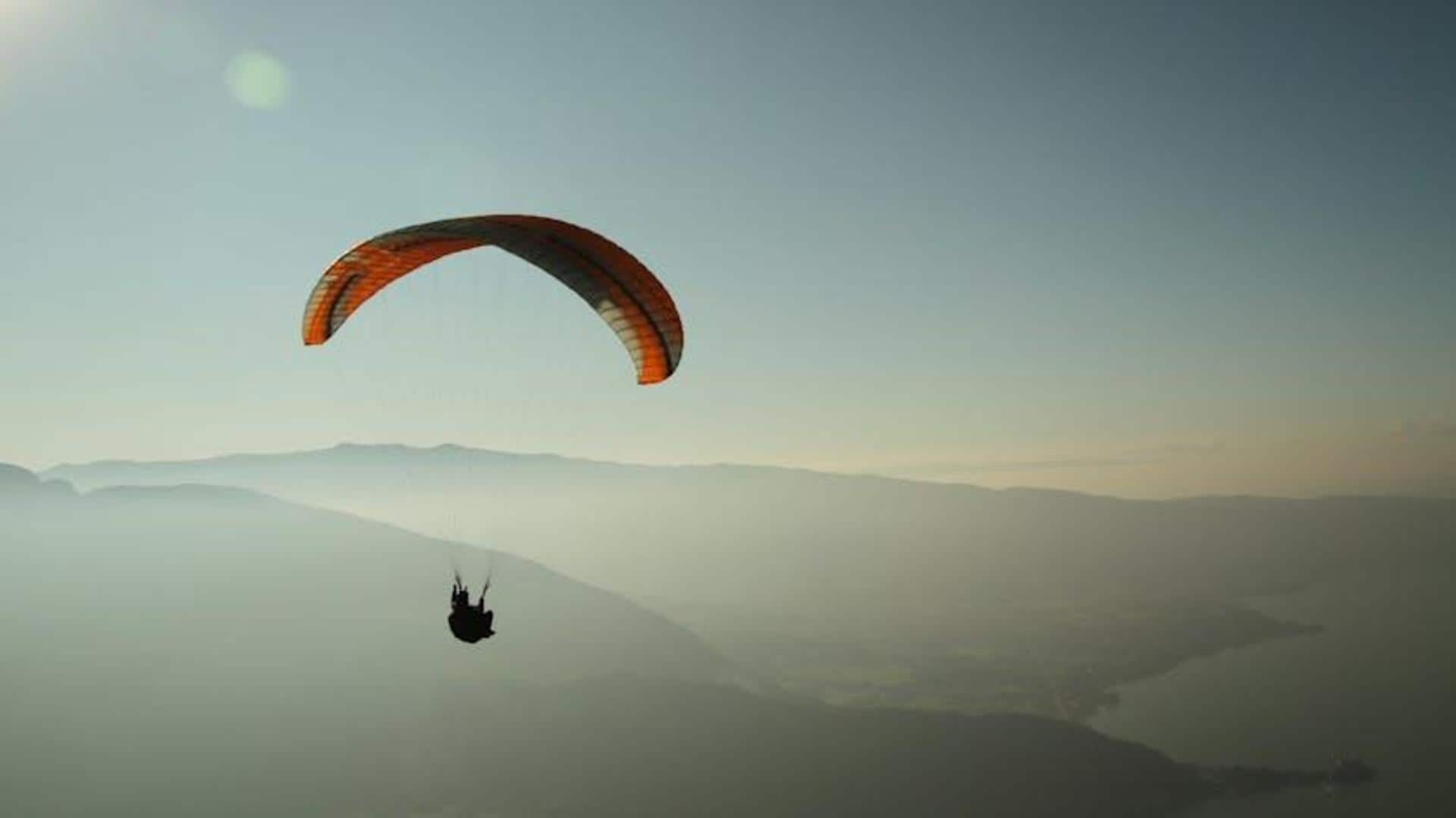
Paragliding over historical landmarks: A guide
What's the story
Paragliding over historical landmarks gives an unbelievable perspective, mixing thrill of flying with historical marvel. It gives the adventure-seekers a chance to view ancient buildings and places from above, uncovering patterns and details which are otherwise missed while on the ground. Here are a few tips for those willing to take this aerial plunge, and make the most out of their time.
Location selection
Choosing the right location
Choosing the right spot is essential for a memorable paragliding experience over historical monuments. Look for regions that are famous for their heritage along with good flying conditions. Places with open grounds and less air traffic work best. Also, make sure to check local rules for airspace restrictions around the monuments to stay within legal limits.
Weather awareness
Understanding weather conditions
Weather is integral to paragliding safety and enjoyment. Always check forecasts for wind speed and direction, and possible storms before planning your flight. Ideal conditions are steady winds of five to 15 kilometers per hour without sudden gusts or turbulence. Knowing weather patterns specific to your chosen location can improve your overall experience.
Safety first
Safety measures and equipment
Always prioritize safety. Use only certified equipment and follow best practices in paragliding. Ensure your gear is well-maintained, including harnesses, helmets, and reserve parachutes. Familiarize yourself with emergency procedures before taking off. If you're new to paragliding or unfamiliar with the area, consider hiring an experienced instructor or guide.
Photography tips
Capturing aerial views
Documenting your flight can also create lasting memories of your adventure over historical landmarks. You can use lightweight cameras or smartphones secured safely during flight for capturing images or videos. Experiment with different angles to highlight both the grandeur of the site below and the vastness of the sky above.